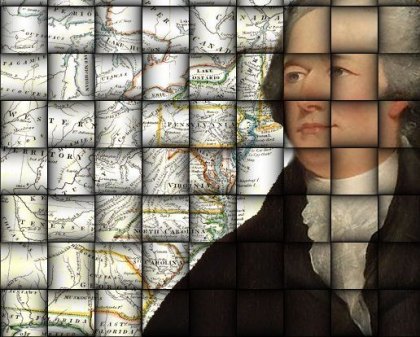Hamilton essay: What it takes to be president

Alexander Hamilton's essay described presidential qualifications.
--Illustration from a portrait by John Trumbull.
The Electoral College is scheduled to vote Dec. 19, and during most election years this would be an unexciting event. But in an opinion piece for The New York Times, Christopher Suprun, a Republican elector in Texas, wrote about his decision to not vote for the presumptive president-elect, Donald J. Trump. Controversial before, during and after the Nov. 8 presidential election, Trump won enough states to secure an Electoral College victory, while Hillary Clinton, the Democratic candidate, won the popular vote.
Trump's temperament, qualifications and business entanglements have been called into question in numerous reports. And Suprun, in making his argument, specifically notes Hamilton's essay on choosing a president, Federalist 68. The Hamilton Electors, a group making a similar argument, also point to this essay on their website.
An uncommon subject outside the walls of a classroom, the 85 essays collectively known as the Federalist Papers were written by Hamilton, James Madison and John Jay in 1787-88. Using the pen name “Publius,” the three urged citizens of New York to ratify the United States Constitution. Throughout, the authors explain the Constitution's intent and describe how the government will work.
Hamilton, now in vogue thanks to a spunky Broadway musical exploring the Founding Father's exploits, had much to say about the role of the Electoral College and the qualifications of an American president. Even given the style of the times, his writing is muscular and to the point. Here are some specifics from number 68, in which Hamilton discusses the Electoral College and qualifications for the president:
- The presidential election should reflect a sense of the people: “It was desirable that the sense of the people should operate in the choice of the person to whom so important a trust was to be confided. This end will be answered by committing the right of making it not to any pre-established body, but to men, chosen by the people for the special purpose.”
- Electors should analyze the qualities of candidates: “It was equally desirable, that the immediate election should be made by men most capable of analyzing the qualities adapted to the station, and acting under circumstances favorable to deliberation, and to a judicious combination of all the reasons and inducements which were proper to govern their choice. A small number of persons, selected by their fellow-citizens from the general mass, will be most likely to possess the information and discernment requisite to such complicated investigations.”
- The president must not be a “creature” of any foreign government: "Every practicable obstacle should be opposed to cabal, intrigue and corruption. These most deadly adversaries of republican government might naturally have been expected to make their approaches from more than one quarter, but chiefly from the desire in foreign powers to gain an improper ascendant in our councils. How could they better gratify this than by raising a creature of their own to the chief magistracy of the union?”
- An independent executive: “The executive should be independent for his continuance in office on all but the people themselves. He might otherwise be tempted to sacrifice his duty to his complaisance for those whose favor was necessary for the duration of his official consequence.”
- Endowed with the requisite qualifications: The Electoral College process, Hamilton wrote, "affords a moral certainty, that the office of president will never fall to the lot of any man who is not in an eminent degree endowed with the requisite qualifications. Talents for low intrigue, and the little arts of popularity, may alone suffice to elevate a man to the first honors in a single state; but it will require other talents, and a different kind of merit, to establish him in the esteem and confidence of the whole union, or of so considerable a portion of it as would be necessary to make him a successful candidate for the distinguished office of president of the United States. It will not be too strong to say that there will be a constant probability of seeing the station filled by characters preeminent for ability and virtue. And this will be thought no inconsiderable recommendation of the Constitution by those who are able to estimate the share which the executive in every government must necessarily have in its good or ill administration."
To know more:
- Read the entire essay, or any of the other Federalist Papers, online at the Library of Congress website.
Related:
The role of the Electoral College
Why was inauguration day changed?
Counting heads: An election lexicon
Follow StudyHall.Rocks on Twitter.
If you would like to comment, give us a shout, or like us on Facebook and tell us what you think.

